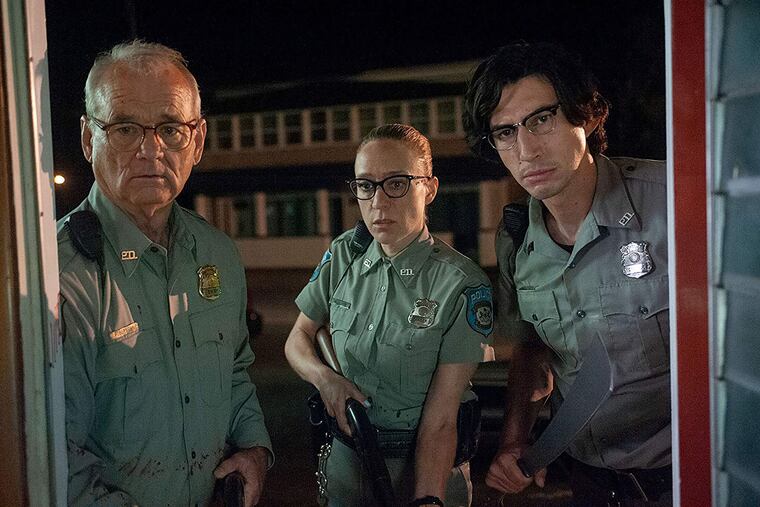Zombies, hipsters and Bill Murray converge in Jim Jarmusch’s ‘The Dead Don’t Die’
Laconic Sheriff (Bill Murray) faces a zombie uprising in his sleepy Pennsylvania town in 'The Dead Don't Die.'

The Dead Don’t Die is indie legend Jim Jarmusch’s take on the zombie movie, and fans of the director will find it to be a nice match of content and style.
Jarmusch’s famously laconic and laid-back characters have, after all, always been been a slight stylistic nudge away from zombie (he’s already made a vampire movie) — when he entered the cultural consciousness in 1984 with Stranger than Paradise, the keystone image was of Eszter Balint, shuffling slowly along, lugging a boom box blaring out “I Put a Spell On You.”
Was she a zombie?
A hipster?
Is there a difference?
We have occasion to ponder those questions in The Dead Don’t Die, which finds Jarmsuch paying tribute to George Romero (last year was the 50th anniversary of Night of the Living Dead) with a movie set in Western Pennsylvania, where the interred are once again rising from the grave.
Fracking at the North Pole has caused the earth to shift on its axis, so the town of Centerville (somewhere near Latrobe) now has the near-permanent daylight of the far northern latitudes. This troubles the town’s laconic sheriff (Bill Murray), but not too much. News that the earth is off-kilter registers with him to the same degree as news that one of his neighbor’s cats is missing. Even the spectacle of a disemboweled waitress at the local diner fails to raise his resting heart rate.
Jarmusch, in his droll way, both celebrates and subverts the familiar elements of the genre. Sheriff’s deputy Adam Driver repeats boilerplate horror movie dialogue (“This will not end well”) until it reaches the point of comic absurdity. At the same time, he looks at dead bodies in the diner and leaps immediately to zombie outbreak, mocking the slow-on-the-uptake cop clichés that are often a feature of the form.
In The Dead Don’t Die, mankind knows all about zombie movies (a few characters seem to be aware they are in one) but has failed to absorb their warnings, and so it has continued on a path of self-destruction made literal by the cannibal dead (the movie’s environmental grievances are bluntly stated). Jarmusch also nods toward Romero’s theme of racism, riffing on it in a way that Romero probably would have liked.
The process of paying homage to Romero has helped Jarmusch locate his sweet spot — the kind of playful, (very) low-register facetiousness that coexists with his preference for the absurd. The town’s eccentric and suddenly busy undertaker (Tilda Swinton), is from Scotland, or maybe somewhere farther away, and her skill with a samurai sword comes in handy.
Jarmusch also enlists “cosmic cowboy” country artist Sturgill Simpson (Tom Waits, Iggy Pop, and Selena Gomez also appear) to write a signature song for the movie, and it is used to construct a complex scaffold of irony. (Simpson himself appears as a zombie, dragging his guitar through he streets — the dead return to fixate on the things that preoccupied them in life.)
This song is beautifully done and helps capture the movie’s blend of oddball humor and melancholy. It also exemplifies how Jarmusch’s eye for cultural curios and kitsch can be assembled to achieve a mood — Simpson bends his voice until it finds the contours of a period-appropriate late-'60s Nashville crooner, at home alongside the ’68 Pontiac that calls back to Night of the Living Dead.
The dead don’t die, Simpson sings, any more than you or I. They’re just ghosts inside a dream — as good a description of Jarmusch’s affectionate Romero tribute as any.
The Dead Don’t Die. Directed by Jim Jarmsuch. With Bill Murray, Adam Driver, Tilda Swinton, Chloë Sevigny, Tom Waits, and Selena Gomez. Distributed by Focus Features.
Running time: 1 hour, 34 mins.
Parents guide: R (violence)
Playing at: Area theaters